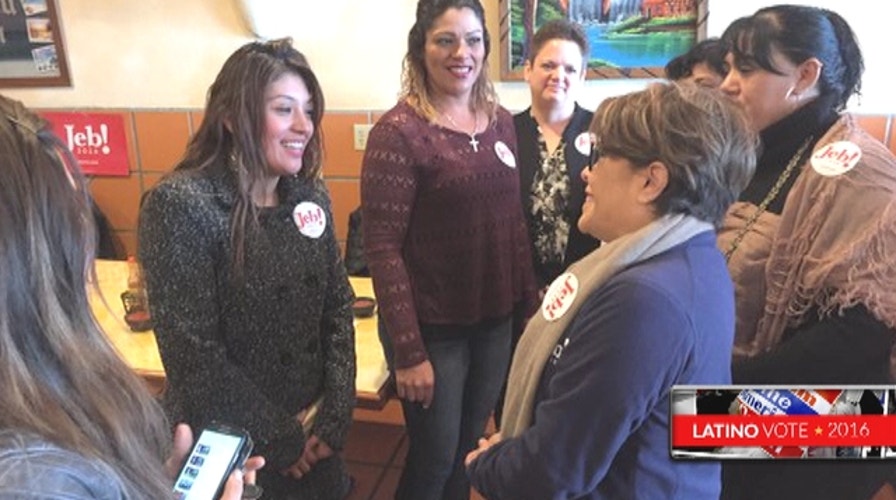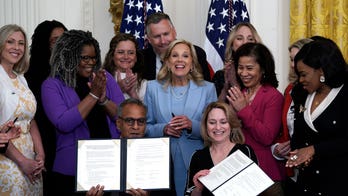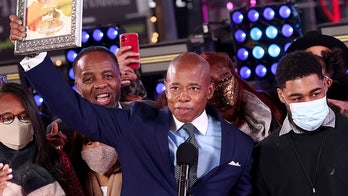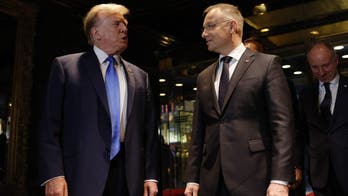Latinos could make a difference in the Iowa caucus
Of the 55 million Latinos in the U.S., some 27 million are registered to vote. In Iowa, 50,000 Latinos are registered to vote. About 20 percent are registered Republicans.
DES MOINES, IOWA – Never before in U.S. history have the top contenders for president in either party included a Hispanic candidate – much less two who have a real shot at the Oval Office.
Whatever transpires from here on in the 2016 race for the U.S. presidency, this much is fact: Among the top contenders in polls around the nation are Latinos Marco Rubio and Ted Cruz, both senators and both Republicans.
They are bested in most polls of GOP voters only by billionaire Donald Trump, who occasionally has slipped behind Cruz, and is basically neck-and-neck with him in Iowa, which on Monday becomes the first state in the nation to cast votes for each party’s nominee.
What is particularly significant is that two Latinos – one of whom grew up in a Latino enclave and nearly always brings up his Cuban immigrant parents and frequently speaks Spanish in public – have won their strongest support in some of the most rural, mainly white, most conservative parts of the country.
The closely-watched and influential Des Moines Register poll released Saturday showed Trump leading with 28 percent among Iowa GOP likely caucus-goers, and Cruz close behind at 23 percent, with Rubio at 15 percent.
- Best pix of the week
- Ted Cruz adapting campaign strategy that worked in Texas to a national stage
- Iowa Latinos emerging as small, but potentially significant political force
- Harlistas: Latino Bikers Debunk Stereotypes
- Latinos Undercover: Celebs You Never Guessed Had Hispanic Blood, Sí Señor!
- In Ridgefield, N.J., Latinos Buck Nationwide Trend
- Jenni Rivera: Other Latinos Whose Lives Ended in Tragedy
- We Salute These Hispanic Trailblazers
- Hey, That Guy’s Not Latino!
It is the kind of support for minorities to lead the world’s superpower that would have been nearly unthinkable just a generation ago.
“It’s enlightening and encouraging that in 2016, the presidential election has two Hispanic candidates running,” said Javier Palomarez, head of the U.S. Hispanic Chamber of Commerce. “Rubio and Cruz are competing on the Republican side, and on the other hand you have Julian Castro possibly being a vice-presidential candidate. Never before have we seen this many Hispanics on the national stage during the presidential election.”
The U.S. Hispanic Chamber of Commerce, which endorsed former San Antonio Mayor Julian Castro, who is now Secretary of Housing and Urban Development, last week, then followed days later with an endorsement of New Mexico Governor Susana Martinez as the Republican candidate for vice president.
“And this is happening simultaneously with the growing importance of the Hispanic electorate,” Palomarez said.
Former New Mexico Gov. Bill Richardson ran in the Democratic presidential primary in 2008, but his campaign never really gained traction. He came in fourth in both the Iowa and New Hampshire primaries, and shortly after dropped out. The first known Latino to run for president was Ben Fernandez, a Republican who entered the race in 1980. Fernandez's parents had been undocumented immigrants. He pushed the GOP to do more to reach out to Latinos.
Of the 55 million Latinos in the United States, some 27 million are registered to vote. In Iowa, 50,000 Latinos are registered to vote.
Only 1,000 Latinos took part in the 2012 GOP caucus, and 3,500 in the Democratic one.
The state is seeing an unprecedented statewide effort by Latino voter mobilization groups, as well as the campaigns of former Florida Gov. Jeb Bush, a Republican and former Maryland Gov. Martin O'Malley, a Democrat, to persuade the community to participate in the caucus. They hope to get between 10,000 and 20,000 Latinos to caucus this year.
With Latinos' growing numbers in Iowa, and the traditionally low participating of Iowans in general in caucuses, Latino leaders say, this burgeoning community can influence the outcome of the first presidential contest in the nation.
“It proves that the Hispanic community, in every aspect – socially, economically, politically – has emerged, and merged into the mainstream of America," Palomarez said.
But on the presidential stage, Latinos are taking command.
At a rally in Coralville, Iowa recently, a crowd of hundreds of residents sat with anticipation as they waited to hear Rubio address them at a campaign rally.
It was an almost exclusively white audience, the norm at most gatherings in this state of cornfields and dirt roads and silos.
Some already were sold on Rubio, others came to evaluate him, their minds still not made up over whom to support for president.
Bill and John Chadima, who are brothers, had not decided on whom to support. They were there to hear what Rubio had to offer. They had gone to campaign events featuring Donald Trump and Ben Carson. Retired teacher Chris James was there out of curiosity, too.
Rubio, clad in a milky gray polo sweater over black slacks, frequently invoked his faith – an almost essential part of campaigning in the heartland, especially in Iowa, where conservative evangelicals are a potent force during the primaries. “Our rights come God, that’s where our rights come from,” Rubio said to applause. He recounted the story that is his narrative in the campaign – about how his father and mother came from Cuba, how his father was a bartender, his mother a housekeeper, and how through hard work they achieved the American Dream.
Sen. Ted Cruz is a clear favorite of Tea Party conservatives and evangelicals. The Texas firebrand, whose father, Rafael, came from Cuba, also regularly invokes faith in his speeches.
Cruz scored a coup when he got the aggressively pursued endorsement of Iowa’s most influential conservative leaders, Rep. Steve King and Bob Vander Plaats, the CEO of The Family Leader, a conservative organization.
“Ted Cruz is a man of high character, he’s a principled conservative,” Vander Plaats said, explaining his choice.
The dominance of Latinos in the presidential polls is a turning point for U.S. politics and society, Vander Plaats said.
“It is historic. We’re a country that has gotten beyond the skin tone. I know a lot of people believe that’s not the case, but we did elect an African American president, Barack Obama,” he said. “If you look at the Republican field today, it’s not just two Cubans, Rubio and Cruz, you have Ben Carson, an African American, and Carly Fiorina, a female.”
Both Vander Plaats and Congressman King say Iowans don't speak of Cruz and Rubio in terms of their ethnicity. Voters sum them up based on their political views and their positions, King and Vander Plaats say.
"No one is coming up to me and saying 'Ted Cruz is Cuban, he can get the Hispanic vote,'” Vander Plaats said. “He's just an exceptional leader."
Cristobal Alex, president of the Latino Victory Project, a group co-founded by actress Eva Longoria and Henry Muñoz, who is finance chair of the Democratic National Committee, said that while Cruz and Rubio have blazed trails in the milestone in the presidential race, it is not a celebratory achievement for many Latinos.
"It's impossible for Latinos to celebrate Cruz and Rubio because they're running against their own community,” Alex said. “They oppose the things that we care about as a community – comprehensive immigration reform, affordable healthcare, climate change."
Veronica Guevara, a 25-year-old from Urbandale who describes herself as a proud Iowan, says she is disappointed in both parties. Like many Latinos, she felt betrayed by the Obama administration's record number of deportations, and recent immigration raids targeting Central American families.
She shakes her head in disappointment at the mention of Rubio and Cruz.
"It's great for them that they've gotten as far as they have, but they don't represent me. They claim to be Latino, but they hold no values that align with mine," Guevara said.
Cruz and Rubio scoff at assertions that they are selling out their Latino community to make gains during the primaries.
They argue that Latinos share values that are more in line with the Republican Party. They have strong family values, hold conservatives views on such things as same-sex marriage and abortion. Many who have fled oppressive regimes – such as Cubans and Venezuelans – tend to favor the GOP's strict approach to foreign policy.
Ted Cruz often says that he won about 40 percent of the Latino vote when he ran for the Senate in Texas.
Vander Plaats said that his organization launched an outreach effort in Iowa's urban areas to motivate them to go to caucus and rally them around conservative values.
“What I love about Latinos is they have a strong, strong commitment to family,” he said. “We should embrace that and make that part of the caucus.”





